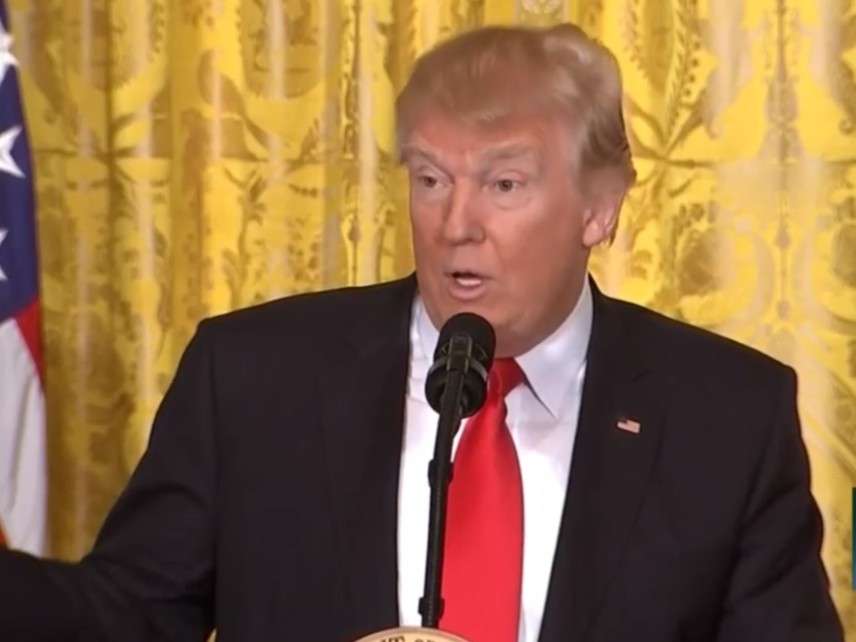George Conway's Spat With Donald Trump Illustrates Psychiatry's Pernicious Influence on the Debate About the President's Fitness
Is Trump suffering from "narcissistic personality disorder"?

This week George Conway, a Republican lawyer and prominent critic of Donald Trump who happens to be married to presidential adviser Kellyanne Conway, diagnosed the president with "narcissistic personality disorder." Trump responded by calling Conway "a total loser," then, upon reflection, a "stone cold LOSER & husband from hell!"
It is tempting to conclude that Conway was the winner of this exchange. His insult was certainly more detailed, and it seemed more sophisticated as well, relying on the supposedly scientific authority of the American Psychiatric Association's Diagnostic and Statistical Manual of Mental Disorders (DSM). But the spat illustrates psychiatry's pernicious influence on the debate about Trump's fitness for the presidency, in which his opponents often try to medicalize their political judgments by portraying his words and actions as symptoms of a mental illness.
Conway is by no means the first Trump critic to notice that the president seems to fit the diagnostic criteria for narcissistic personality disorder, which include grandiosity, attention seeking, self-centeredness, "exaggerated self-appraisal," condescension, feelings of entitlement, lack of empathy, and relationships that are "largely superficial and exist to serve self-esteem regulation." This week Conway retweeted a comment to that effect from Duty to Warn, "an association of mental health professionals warning Trump is psychologically unfit," whose members recently published an updated version of their 2017 book The Dangerous Case of Donald Trump.
What is gained from saying Donald Trump has a mental disorder, as opposed to saying Donald Trump displays a bunch of unattractive personal qualities that tend to go together? The substance of the two statements is exactly the same, since the diagnosis is based on nothing more than the collection of traits. But the former statement implies that people who do not like Trump have medical science on their side, which gives their opinions an aura of authority. It also implies that Trump is dangerously unhinged and cannot help himself, which lends support to the argument that he must removed from office through extraordinary means rather than the judgment of voters—who, after all, put him there in the first place, even though he had been displaying the "symptoms" of this "mental disorder" for years.
"Don't assume that the things he says and does are part of a rational plan or strategy, because they seldom are," Conway wrote on Twitter. "Consider them as a product of his pathologies, and they make perfect sense." He added that "*all* Americans should be thinking seriously *now* about Trump's mental condition and psychological state, including and especially the media, Congress—and the Vice President and Cabinet." Comments like that suggest impeachment or invocation of the 25th Amendment would be preferable to awaiting the outcome of the 2020 election.
"This is just my way of expressing my views about something I find thoroughly maddening, which is the utter incompetence and mendacity of the president and the administration," Conway told The New York Times. But by invoking the DSM, Conway is not just expressing his views about the president and his administration. He is suggesting that the president's scientifically validated mental incapacity makes it reckless to let voters decide whether he should remain in office.
Unlike Conway, I am not willing to let Trump off the hook by attributing the outrageous things he says and does to an unverifiable defect in his brain. Furthermore, I am still inclined to think his antics are doing all of us a favor by undermining respect for the presidency and making the case for reining in the executive branch. Maybe I am wrong. But the answer cannot be found in the DSM.


Show Comments (150)